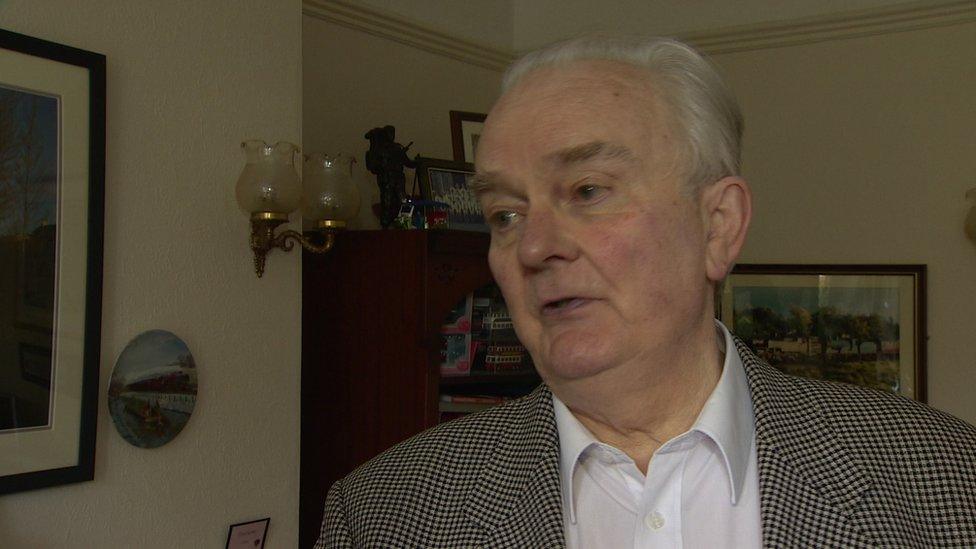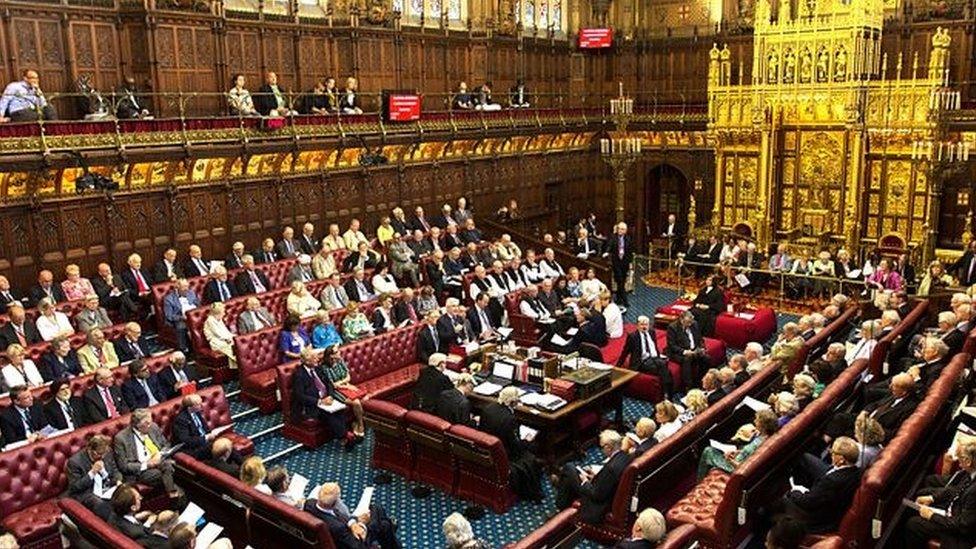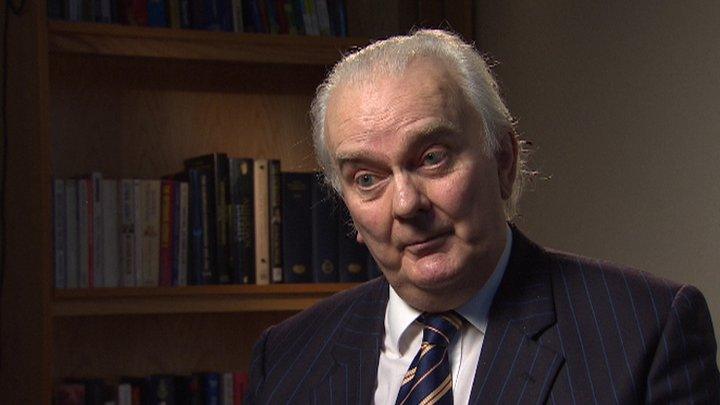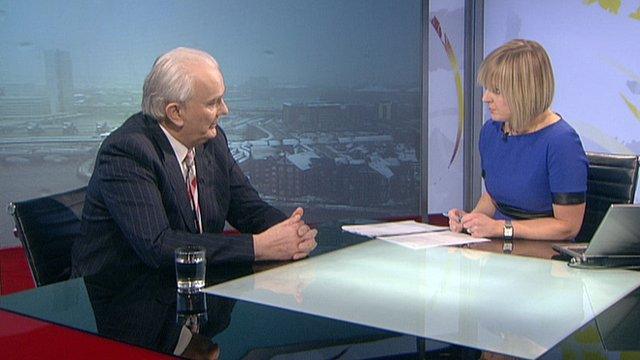Lord Laird's 'conscience is clear' on expenses
- Published

Lord Laird says he has no intention of quitting the House of Lords
Lord Laird has said his "conscience is clear" about claiming almost £50,000 in expenses despite only voting twice in the House of Lords last year.
The former Ulster Unionist peer said his frail health meant his office was too far away to attend each vote.
The Electoral Reform Society has criticised "couch potato peers", saying those who spoke fewer than five times in 2016-17 had claimed £4m in expenses.
But Lord Laird said he would continue to attend "as long as I can make it".
"Some years ago I had a heart attack and I now have arrhythmia," Lord Laird told BBC News NI.
This rendered him unable to speak in the chamber, he said.
"I also suffer from heart failure. When I get up and speak anywhere I go into a cycle of panic and that gets worse. It is difficult to speak."
Lord Laird said he believed that the amount of times peers vote or speak in Lords is "not a measurement of anything - only of how many times you've actually been there during a vote".
He also said there were issues surrounding the distance between his office and the chamber.

Lord laird says his Westminster office is too far from the Lords' chamber
"The office that I have in Westminster is too far away from the main chamber for me to get there in the allotted time because I cannot walk fast and I've got to stop every so many steps to take a breath. Therefore I can't vote."
He said there were also "political reasons" for not voting.
"I was a very careful voter up until devolution for Northern Ireland.
"I need to vote on things about the UK, and now and again Northern Ireland.
"I realised after a few runnings, across a main road, that I couldn't make it trying to get across".

The UK Parliament's second chamber has 798 members in total, making it the second-largest legislative body in the world, after the National People's Congress of China.
Members are not paid a salary but can claim an attendance allowance of up to £300 on days that the House sits.
The last major reduction in the size of the chamber was in 1999, when the number of hereditary peers was cut by more than 600 to 92.

'Awful lot of work'
"The point is there's an awful lot of other work done. I'm the Lords' person who asks the most questions, and have done in the past 18 years of considerable importance."
Lord Laird was not present for a Brexit vote because he could not get there on time.
"It's very simple. Because of my disability, and I am recognised by the Lords as being disabled, that's why I get this disabled allowance for taxis, which puts my money up.
"I'm not very well-liked by the establishment because I ask too many awkward questions," he said.
Lord Laird dismissed claims that the public would have questions regarding his lack of speaking, or voting.
"They are very understanding because of the vast amount of questions that I have asked.
"I do an awful lot of work for individuals. I take my job very seriously. I just happen to have problems.
'Six hours'
"It takes me six hours by the time I get over from Belfast and get back."
Lord Laird said the attention should be turned to those Lords who never attend, and that he had a totally clear conscious.
The peer was criticised in 2003 when, as chairman of the Ulster-Scots Agency, he spent hundreds of pounds taking taxis to Dublin and Londonderry.
He linked his taxi use to his practice of wearing a kilt to official functions - which he said drew attention and was therefore a security issue.
- Published21 September 2017

- Published3 June 2013

- Published22 March 2013
